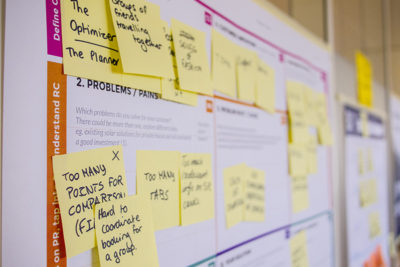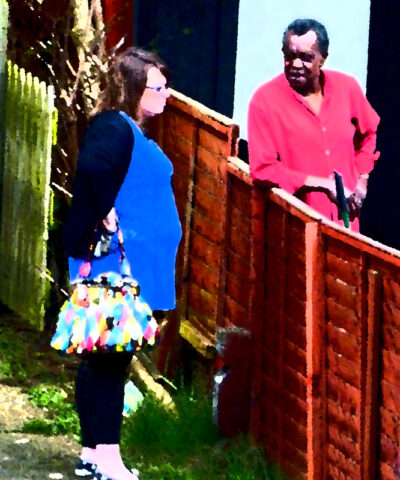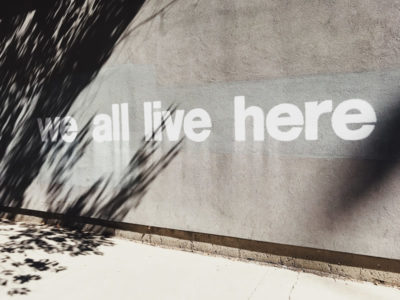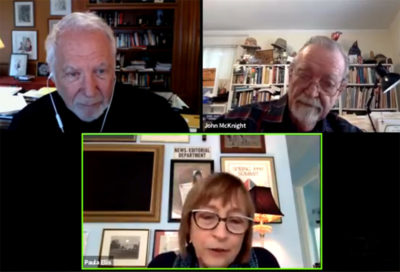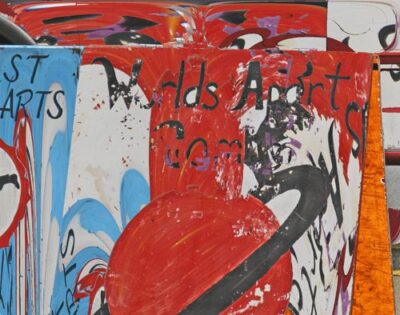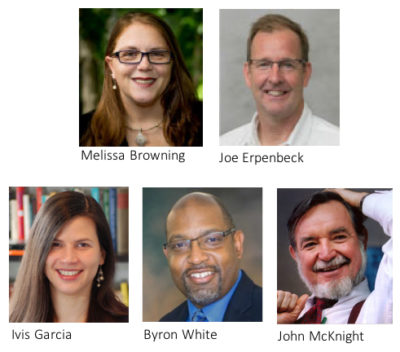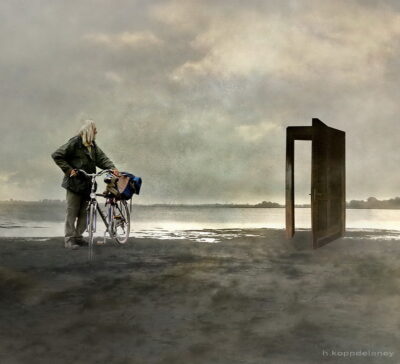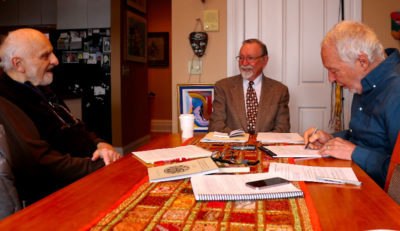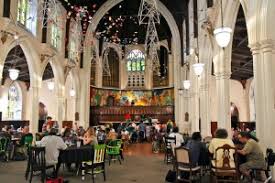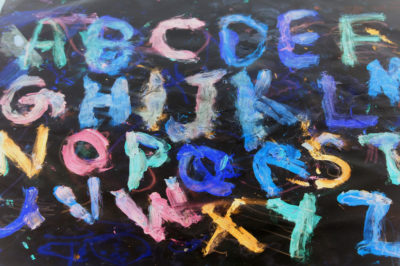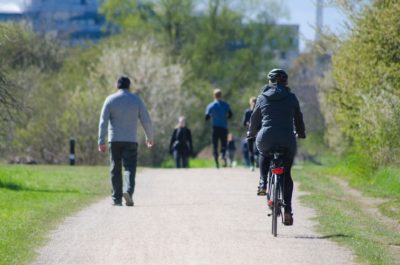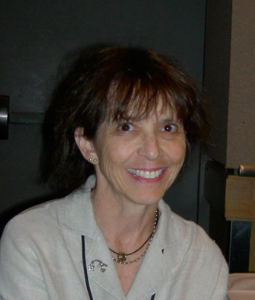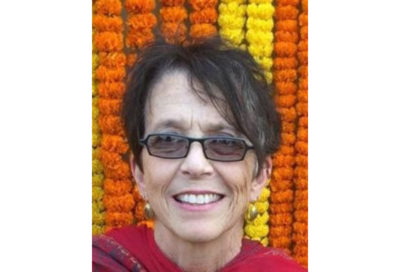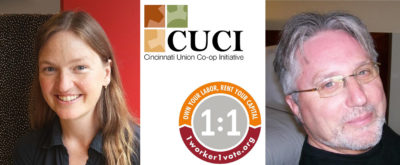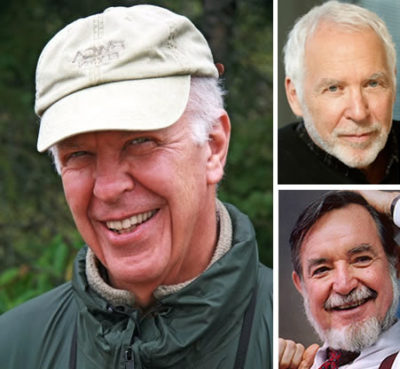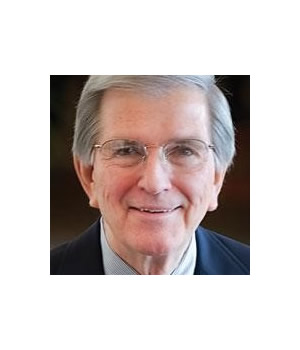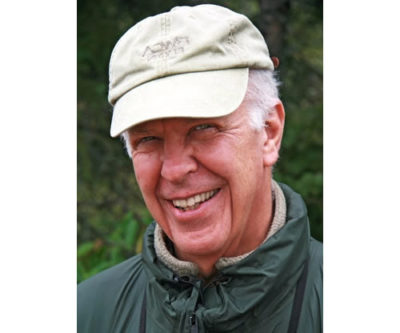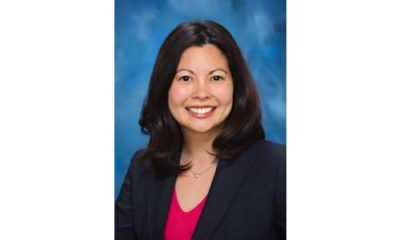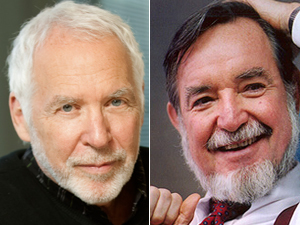John McKnight
Embracing Deviance
The Affinity Dilemma
The Dilemma of Meetings
The Problem With Problems
Intentional Neighborhoods in Co-Housing
Building Wealth for All through Dividend Housing
Organizing Residents to Solve an Impossible Challenge
Changing the Narrative for Community Leadership
Restorative Practices for Turbulent Times
What can happen when we move justice out of the law system and into neighborhoods and communities? Restorative practices are being put into action beyond justice systems into schools and institutions, changing the conversation from fault and punishment to looking at who has been harmed, how they were harmed and whose obligation it is to repair that harm. In this conversation, community and organizational psychologist Thom Allena shares insight and experiences from his work with restorative justice. Listen:
Powerful Possibilities of Being Small
Departing the Consumer Culture
Associating Associations: The Power of Convening
An Introduction to ABCD
Organizing the Unorganizables
How Neighborhoods Engage with Local Governments
How are institutions and government most useful in supporting neighbor driven initiatives? What can we do with a little bit of outside assistance? And what do we need somebody from the outside to do? Ron Dwyer-Voss asks these three questions in his work engaging with community groups who want to have stronger relationships with local government.
Ron, owner and founder of Pacific Community Solutions, uses the Asset-Based Community Development process with community groups to help them identify how they can do something to create transformation. He shares with John McKnight and Peter Block stories and insights such as the importance of including reflection and learning conversations as part of the process.
Listen:
Announcing Common Good
A Place at the Table
In Search of the Tie That Binds
Neighborhood initiative impacting social health
In Rochester NY, Deborah Puntenney and her network are transforming the conventional wisdom about how foundation money can produce resident health outcomes. Eight years into the project with the Greater Rochester Health Foundation they are investing in the social determinants of health through grassroots, place-based and resident-driven efforts. This is not about more health services.
The foundation and a group of its grantees formed the Neighborhood Health Status Improvement Initiative, where four neighborhood groups are using Asset Based Community Development to work on health-related issues.
Deborah shares examples from an inner-city community in this conversation with Peter Block and John McKnight:
Related Links:
dpuntenney.com
thegrhf.org/funding/neighborhood-health/
photo courtesy Pixabay.com
How Community Action Shapes Health
Upcoming Community Action and Health Discussion
Did You Know There’s a Union Co-op Movement?
What possibilities do worker-owned co-ops hold for an alternative economy? In the Basque region of Spain, Mondragon is the world’s largest group of industrial worker-owned co-operatives transforming the region from poverty to thriving and resilient communities. In Cincinnati, the Cincinnati Union Co-op Initiative (CUCI) is doing the same.
Michael Peck, co-founder of 1worker1vote.org and a North American Delegate for Mondragon, and Kristen Barker, president and co-founder of the CUCI, join Peter Block and John McKnight in a conversation about union co-op possibilities, successes and struggles. Listen to the full conversation:
Quotes
“This integrated network of co-ops is one of the exciting things that is now coming to life in a much bigger way in the United States because of this Mondragon union co-op.” Kristen Barker
“Stakeholders are coming together who have decided that it’s time to re-own their own economy. It’s time to take their economic sovereignty back and they look to us as a way forward to do that, not just a pathway out of poverty, but a pathway to actual prosperity.” Michael Peck
More Resources
Mondragon: http://www.mondragon-corporation.com/eng/
Cincinnati Union Co-op Initiative: https://www.cincinnatiunioncoop.org/
Upcoming event: National Union Co-op Symposium
Join John McKnight on Zoom May 16
Old Age as an Asset: Conversation with Parker J. Palmer
World-renowned writer, speaker, and activist Parker J. Palmer talks about aging as an asset that is tied in with community development. Parker is co-founder of Center for Courage and Renewal. Parker talks about the need for meaningful, intergenerational activities, where seniors sit with school children or talk with young adults about their vocation and life calling. He shares about periods of struggle in his life and how a friend found a surprising way to provide comfort and connection.
Quotes:
“…this abundance we all have if we’re not afraid of each other, which is the abundance of simple presence to another human being.”
“When our circles gather, we say, rule number one is there shall be no fixing, no saving, no advising, and no correcting each other.”
“It doesn’t matter how old we are, the search for meaning and purpose never ends.”
Listen to the full conversation with Peter Block and John McKnight:
(Parker J. Palmer photo courtesy Center for Courage & Renewal)
Citizens and local democracy: a conversation with David Mathews
David Mathews shares the story of a community where the schoolhouse’s paint was falling off. When a group of neighbors got together and repainted the school the purpose wasn’t about getting paint on the walls – but to demonstrate when people get together they can make a difference.
The Kettering Foundation’s primary research question is “what does it take to make democracy work as it should?” Research is conducted from the citizen’s perspective and explores what people can collectively do to address problems.
David shares these ideas and more in a conversation with John McKnight and Peter Block. Listen here:
Parker J. Palmer Joins April 10 Abundant Community Call
Building Neighborhood Economy: City Solicitor Paula Boggs Muething
City of Cincinnati solicitor Paula Boggs Muething joins Peter Block and John McKnight in conversation on what’s economically possible for poor and marginalized neighborhoods. (more…)
Abundant Communities Zooms to Alberta
Peter Block and John McKnight in Conversation
On Dec. 12, 2016, more than 60 callers listened to Peter Block and John McKnight reflect on their long history of working to building communities by focusing on gifts and connecting people. They discuss what ideas have endured and what questions remain. (more…)







